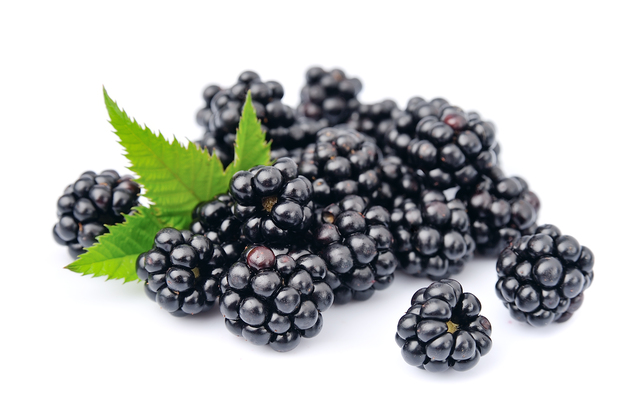Can Dogs Eat Blackberries? A Comprehensive Guide
Hello fellow dog lovers, today we’re going to delve into answering the question: “Can dogs eat blackberries?”
As an enthusiastic dog lover and advisor, I am here to provide you with some helpful suggestions and reasons for my suggestions.
Can Dogs Eat Blackberries?
Yes, dogs can eat blackberries. These sweet-tart fruits are non-toxic and generally safe for dogs to consume in moderation. However, as with any human food, they should not make up the main portion of your dog’s diet.
The Nutritional Value of Blackberries
Blackberries are rich in essential vitamins and minerals. Here are a few key ones and their benefits:
Vitamin A:
This vitamin is crucial for maintaining good vision, growth, and immune health. It also contributes to the health of skin and coat in dogs.
Vitamin C:
Known for its immune-boosting properties, vitamin C can help dogs fend off sickness and disease. While dogs produce some Vitamin C in their liver, supplemental sources like blackberries can be a bonus.
Vitamin K:
This vitamin plays a key role in blood clotting. It helps in wound healing and prevents excessive bleeding.
Vitamin E:
Vitamin E is an antioxidant that helps protect the cells in your dog’s body from damage and promotes healthy skin and coat.
Manganese:
Manganese supports the proper functioning of the brain and the body’s enzymatic reactions. It also assists in the metabolization of proteins and carbohydrates, promoting energy production.
Fiber:
Blackberries contain a considerable amount of dietary fiber, which is beneficial for maintaining a healthy digestive system in dogs. It aids in bowel regulation and can help with weight management by promoting feelings of fullness.
Antioxidants:
Blackberries have high antioxidant content, primarily in the form of anthocyanins, which give the fruit its rich, dark color. Antioxidants help to neutralize harmful free radicals in the body, thus protecting the body’s cells from oxidative stress and inflammation. For dogs, this can mean improved overall health, a stronger immune system, and a lower risk of chronic diseases.
Health Benefits of Blackberries for Dogs
Blackberries are a healthy treat for dogs when given in moderation. With their rich nutrient profile, they can provide numerous health benefits.
Improved Digestive Health
Blackberries have a decent amount of dietary fiber. Fiber aids digestion by adding bulk to the stool, which can help dogs with both constipation and diarrhea. It also supports overall gut health and can contribute to weight management by making your dog feel full.
Enhanced Immune Function
The vitamin C and antioxidants in blackberries can enhance your dog’s immune system. They help fight off harmful free radicals, reducing the risk of chronic diseases and infections.
Healthy Skin and Coat
The vitamins A and E present in blackberries contribute to a shiny, healthy coat and support skin health. They can also help to alleviate skin irritations and inflammation.
Optimized Eye Health
The vitamin A in blackberries helps maintain eye health in dogs, preventing age-related ocular issues such as macular degeneration and cataracts.
Bone Health Support
Blackberries are a good source of manganese, a mineral that supports bone health. It aids in the development of strong and healthy bones, making it especially beneficial for growing puppies and older dogs.
Cognitive Function Support
The antioxidants in blackberries can benefit cognitive function in dogs, particularly in senior dogs. They help to protect against cognitive decline and improve memory and brain health.
It’s important to note that while blackberries offer these fantastic benefits, they should not replace a balanced, complete dog diet. Always think of them as a supplemental treat and not a meal substitute. Like all good things, blackberries should be given to dogs in moderation. Be sure to watch out for any signs of allergies or intolerances, and consult your vet if you have any concerns.
Possible Risks of Blackberries for Dogs
Though blackberries are safe for dogs to consume in moderation, there are potential risks to consider.
Digestive Issues
While blackberries have fiber that can aid digestion, too many can lead to digestive upset, including diarrhea and gas. It’s always best to introduce new foods slowly to monitor your dog’s reaction.
Allergic Reactions
Although it’s rare, dogs can be allergic to anything, including blackberries. Signs of an allergic reaction include hives, swelling, difficulty breathing, and anaphylaxis. If your dog exhibits any of these symptoms after eating blackberries, seek veterinary care immediately.
Choking Hazard
Though small, blackberries could potentially pose a choking hazard, especially for small breed dogs. To avoid this risk, consider mashing the blackberries or cutting them into smaller pieces.
High Sugar Content
Blackberries, like many fruits, contain sugar. While natural, it’s still sugar and should be limited in a dog’s diet. Excessive sugar can lead to obesity, dental issues, and even diabetes.
Pesticide Exposure
Unless they’re organic, blackberries may have been treated with pesticides. Always wash fruits thoroughly before giving them to your dog to minimize pesticide exposure.
While these risks may seem concerning, remember that they’re typically associated with overconsumption or lack of preparation. As long as blackberries are fed as an occasional treat (not a diet staple) and prepared properly, they can be a beneficial addition to your dog’s diet. Always monitor your dog after introducing new foods and consult your vet if you notice any adverse reactions.
How to Serve Blackberries to Your Dog
Feeding blackberries to your dog requires a bit of preparation to ensure they are safe and enjoyable for your pet.
Clean Thoroughly
Firstly, wash the blackberries thoroughly under running water to remove any dirt, bacteria, or pesticide residues. Organic blackberries are a great choice to avoid pesticide concerns.
Serve in Moderation
Blackberries should be given as a treat and not as a meal replacement. Start with one or two blackberries and gradually increase the amount if your dog tolerates them well.
Size Appropriately
While blackberries are generally small and soft, they could still potentially pose a choking hazard for smaller dogs. For small breeds or puppies, you might consider mashing the blackberries up or cutting them into smaller pieces.
Try Different Forms
Fresh blackberries aren’t the only way to go. You can also try giving your dog freeze-dried blackberries or mixing mashed blackberries into their regular food for a little added flavor. Remember, even when given in these forms, they should still only make up a small portion of your dog’s diet.
Monitor Your Dog
Always monitor your dog after introducing new foods. Watch for any signs of gastrointestinal upset or allergic reactions. If you notice any concerning symptoms, discontinue the blackberries and consult your vet.
Remember, blackberries should only be a treat, and they should not make up more than 10% of your dog’s daily calorie intake.
Alternatives to Blackberries
If your dog does not like blackberries, or if they cause digestive upset, there are plenty of other fruits and berries that are safe for dogs. These include blueberries, strawberries, and apples (without the seeds).
Can Dogs Eat Blackberries Conclusion
In conclusion, blackberries can be a healthy treat for your dog when served in moderation. They provide several health benefits but also come with some potential risks. Always introduce new foods slowly and watch for any signs of an allergic reaction or digestive upset. As always, if you have any concerns, consult with your vet.
Can Dogs Eat Blackberries FAQ
Can blackberries be a part of my dog’s daily diet? No, blackberries should only be an occasional treat. They should not make up more than 10% of your dog’s daily calorie intake.
Can my puppy eat blackberries? Yes, puppies can eat blackberries. However, as puppies have more sensitive stomachs, introduce the fruit slowly and in small quantities.
Can my dog eat blackberry leaves or stems? No, you should only feed your dog the berry itself. Leaves and stems can be hard to digest and can potentially cause blockages.
What should I do if my dog eats too many blackberries? If your dog eats too many blackberries, they might experience diarrhea or other digestive upset. If symptoms persist, contact your vet.
Are frozen blackberries safe for dogs? Yes, frozen blackberries can be a refreshing treat for your dog, especially in hot weather. Just make sure to thaw them a bit before serving to prevent a choking hazard.
Additional Dog Diet Info:




